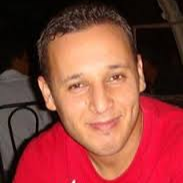
Mekkaoui Kheireddine
Work place: Saida University, Saida, 20000, Algeria
E-mail: mekdar@hotmail.com
Website:
Research Interests: Applied computer science, Computer systems and computational processes, Computer Architecture and Organization, Theoretical Computer Science
Biography
Kheireddine Mekkaoui was born on 12 March, 1979, in Mascara, Algeria. He received, in 2001, an engineering degree in Computer Science from the Computer Science department of Djillali Liabes University of Sidi Bel-Abbes, he received, in 2009, the Magister diploma in industrial computer science from the University of Mustapha Stambouli of Mascara.
Kheireddine participates in the program committees of several international conferences, he is a member of GeCoDe laboratory at the University of Dr Tahar Moulay in Saida; he also collaborate with Wireless Ad-hoc and Sensor Networks (WASN) Laboratory of the University of Parma, Italy. He is involved in several teaching and research activities in the area of Wireless Sensor Networks.
Author Articles
Genetic Centralized Dynamic Clustering in Wireless Sensor Networks
By Mekkaoui Kheireddine Rahmoun Abdellatif Gianluigi Ferrari
DOI: https://doi.org/10.5815/ijcnis.2015.08.01, Pub. Date: 8 Jul. 2015
In order to minimize the energy consumption involved by communications in wireless sensor networks, the use of clustering has proven to be effective. The problem remains to determine the number of cluster-heads, and their distribution in the network to ensure minimal energy consumption and better coverage networks. Unlike Low-Energy Adaptive Clustering Hierarchy algorithm which fixes in advance the number of cluster-heads, and do not guarantee the coverage of the entire network, in this paper, we proposed a genetic centralized dynamic algorithm (GA)-based clustering approach to optimize the clustering configuration (the number of cluster-heads, their distribution and the cluster-members) to limit node energy consumption and the best coverage. The obtained simulation results show that the proposed technique overcomes the Low-Energy Adaptive Clustering Hierarchy algorithm.
[...] Read more.Other Articles
Subscribe to receive issue release notifications and newsletters from MECS Press journals